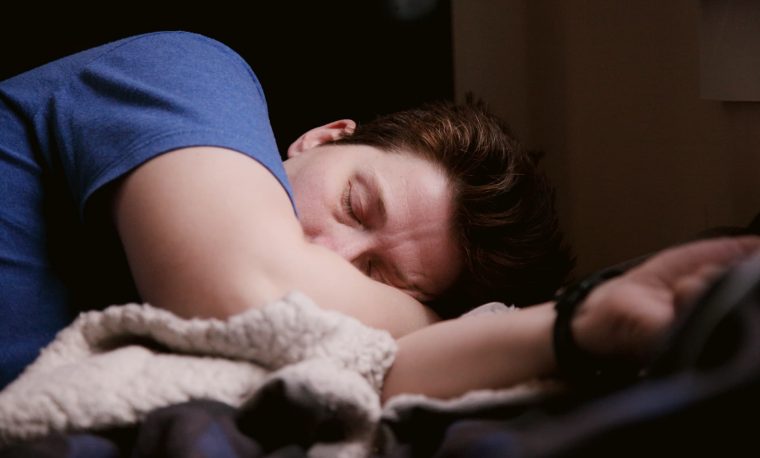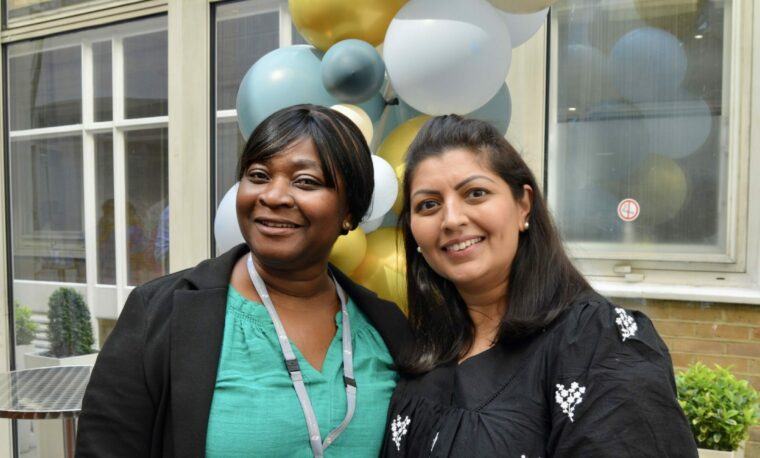What is the OCD and related disorders inpatient unit?
The OCD and related disorders unit at Nightingale Hospital is a 6-bedded inpatient service, dedicated to treating patients with OCD. It is a private and unique service, specialising in the intensive delivery of cognitive behaviour therapy (CBT). The unit is under the leadership of world-renowned expert, Professor David Veale.
Although described as an OCD unit, our team also provide treatment for OCD-related disorders, such as body dysmorphic disorder (BDD), health anxiety and emetophobia (fear of vomiting).
Who would the OCD programme be suitable for?
The OCD inpatient unit is especially suitable for individuals experiencing severe distress and impairment as a result of their condition. In these circumstances, individuals may have found outpatient treatment less effective and could benefit from an intensive programme of inpatient treatment with nursing support.
Inpatient treatment on this unit would be most beneficial for patients:
- Who are severely impacted by their condition, i.e. unable to carry out daily living tasks, work, maintain relationships, or attend to personal care
- Who have become housebound, have a reversal of their sleep pattern, or suffer from obsessional slowness making attendance to outpatient therapy almost impossible
- Who struggle to maintain their own safety living independently in the community, due to thoughts of suicide or self-harm
- Would benefit from 24-hour nursing care
- With additional diagnoses such as depression, schizophrenia, or disordered eating, which may make outpatient treatment more complex
About Nightingale Hospital’s specialist OCD inpatient service
Unit philosophy
We believe that everyone has the potential to overcome their condition and increase the quality of their life, irrespective of what past treatment they have had or how long they have struggled.
Our therapy is evidence-based, and modelled on current research, as recommended by NICE guidelines on OCD and BDD. In line with this guidance, we currently provide a treatment programme focused mainly on cognitive behavioural therapy (CBT) and exposure and response prevention (ERP). We continually monitor the progress of patients throughout treatment, through the use of weekly symptom questionnaires. We also monitor the effectiveness of the treatment programme by gathering feedback from patients. Our service and treatment programme will continually update in line with recent evidence, research, and feedback.
Our emphasis is for patients to discover alternative ways of thinking and behaving, and to learn about their problems to maintain a long-term change. Although, therapy may be combined with medication, as research suggests this combination offers the most positive results.
The unit is a therapeutic community where we encourage each person to share, learn, support, and strengthen each other in making the changes necessary to move forward.
Our treatment is evidence-based; however, its success relies heavily on your willingness and readiness to engage with intensive and goal-oriented treatment. We ask you to invest your trust in your team and the treatment journey. We expect patients to be prepared to face their fears and learn that by doing so, they can change their life for the better. We aim to provide a safe, caring, and supportive environment for inpatients to do this.
Treatment team
The specialist multidisciplinary team is led by the esteemed Professor David Veale (Consultant Psychiatrist, Lead consultant psychiatrist for OCD and related disorders at Nightingale Hospital). The team also includes BABCP accredited CBT therapists, psychological therapists, occupational therapists, mental health nurses, ward manager, a ward doctor and usually psychology or nursing students.
Therapy programme
The inpatient treatment programme is comprised of both group and individual sessions, to support with daily exposure or behavioural experiments.
Inpatients receive:
- Up to three one-to-one treatment sessions a week, tailored to their specific needs. These will be arranged with a member of the unit’s multi-disciplinary team and will generally include two cognitive behavioural therapy (CBT)sessions and one exposure and response prevention (ERP) session, although this is subject to change.
- A weekly timetable specific to the OCD unit, comprised of a mixture of groups made up of psychological therapies, occupational therapy, art therapy, and other activities that promote emotional and physical wellbeing.
- Support with ERP tasks during groups and throughout the day from the multi-disciplinary team.
- 24-hour nursing support.
- Regular monitoring of progress through use of clinical questionnaires and weekly consultant reviews.
We are an accredited service by the British Association for Counselling and Psychotherapy (BACP).
What is exposure therapy?
The core of treatment consists of exposure therapy. Exposure is popularly described as ‘facing one’s fears’, however, it’s much more than this.
Exposure therapy means:
- Planning to face fears deliberately and repeatedly, and is not the same as being triggered accidentally
- Exposing oneself to fears at high enough levels of anxiety, and for long enough so one can learn to tolerate the anxiety. Anxiety may not reduce when exposed to the fear, but the anxiety lessens when you repeat it again and again
- Testing out expectations. This is called a ‘behavioural experiment’.
Occupational therapy
We have specialised occupational therapists (OT) who will work with you to develop occupational and leisure goals. Occupational therapists will be able to advise you on what activities will be helpful, or unhelpful for you. This will help reduce the time and impact that the condition will have on your life, and reintroduce varied activities.
Occupational therapy can help in many ways:
- Giving meaningful structure to your day
- Testing out fears within OT activities
- Helping to improve concentration and motivation
- Building self-esteem and confidence
- Being around other people and socialising
- Developing or maintaining practical life skills
- Building vocational skills and opportunities for volunteering and work experience
How can I be referred to the OCD programme?
You can be admitted under the care of Professor Veale or another Nightingale Hospital Consultant Psychiatrist. However, there may be a waiting list and admission usually needs to be planned.
Before admission, a therapist will see you for an assessment session. This session will focus on reviewing your current difficulties and exploring your expectations and goals for treatment. This helps us to explore your individual needs and ensure we are offering the most appropriate and effective treatment for you at the time. The assessment involves discussion, questions, and the completion of questionnaires. We can arrange for the assessment to take place online or in-person. If our treatment programme is suitable for you, your admission date will be confirmed.
Before joining the programme, you will be asked to agree to our Conditions of Admission.
To enquire about this programme, please contact our Patient Services Team by filling out an enquiry form. Alternatively, you can telephone +44 (0)20 7535 7732.
If you are a GP or health professional, you can refer a patient to this programme by using our online referral form.
Patient testimonials
What patients are saying about the OCD and related disorders unit at Nightingale Hospital:
- “This is such an amazing service. I was so apprehensive on arrival. I really felt that my OCD was out of control and I could not see how anyone could help me. I was so low in mood. The first week was hard trying to open up to the therapists, but they developed an excellent treatment plan for me and they soon gained my trust. They are extremely well-qualified, kind, caring and professional. Within no time, I was fully committed to doing everything asked of me and my mental health improved greatly day by day. I cannot explain how thankful I am to Nightingale Hospital and the OCD ward. I had my life back within no time and I will always be indebted to my time there. Give it your all. You can do it!”
-
“When I entered Nightingale Hospital, my life was falling apart. My OCD was eating away more and more of my time and the physical strain of maintaining my rituals was slowly destroying my body. Waiting lists on the NHS were too long and I had nowhere else to go other than a private facility. With this motivation, I settled into the OCD exposure tasks and it was incredibly difficult and distressing for some weeks given the extreme nature of my condition. Little by little, I carved a way forward to a newer, more hopeful future that’s free from the crippling anxiety and depression that held me back for decades. If you enter the OCD unit willing to walk straight into the fire and give it your all the level of progress you can make will completely redefine your life. Have faith in the program and trust your therapist and consultant, because they do know how to help you beat this disorder, and make the most of your time in the hospital by befriending and learning from the other patients and their disorders. With this much support behind you, there is nothing you cannot conquer. I’m living proof of that. Good luck!”
Funding treatment
Treatment at Nightingale Hospital can be accessed via private medical insurance or can be self-funded.
The hospital is accredited by all major private medical health insurers. Patients who are funding treatment via their private medical insurance will be asked to provide policy details prior to treatment. This is so that pre-authorisation for treatment can be obtained.
In addition, the hospital accepts patients funded by embassies, corporate organisations, management companies, and other third parties.
All self-funding patients will be required to provide an upfront payment before accessing inpatient treatment.
Useful resources
The following resources, charities or organisations might be helpful for those suffering from OCD, BDD, emetophobia or health anxiety.
- Professor David Veale’s website provides a wealth of information regarding OCD, BDD, emetophobia and other related conditions. In addition, he has written many highly regarded self-help books, as well as books and chapters written for health professionals
- OCD Action
- The Body Dysmorphic Disorder Foundation
- OCD UK
- Emet Action












